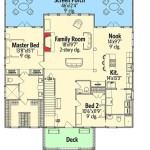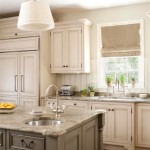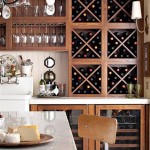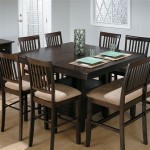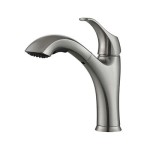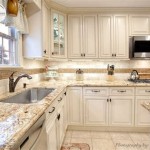What Not to Do In A Kitchen Remodel
A kitchen remodel is a major undertaking, requiring careful planning, budgeting, and execution. While the prospect of a brand-new, functional, and aesthetically pleasing kitchen is exciting, the reality of the remodeling process can be fraught with potential pitfalls. Avoiding these common mistakes is crucial for a successful and stress-free renovation. This article outlines key errors to avoid during a kitchen remodel to help ensure a smoother and more efficient project.
Underestimating the Project's Scope and Budget
One of the most common errors in kitchen remodels is underestimating the true extent of the project. Many homeowners begin with a vision focused solely on cosmetic changes, such as new countertops and cabinets. However, a thorough assessment should consider underlying issues that may necessitate further work. This may include outdated plumbing, faulty electrical wiring, or structural problems concealed behind walls and under flooring.
Failing to adequately address these underlying issues can lead to unexpected costs and delays down the line. For example, if the existing plumbing is not up to code, replacing it will become a necessary and potentially costly addition to the remodel. Similarly, outdated electrical wiring may not be able to handle the demands of modern appliances, requiring a complete rewiring of the kitchen circuit.
Furthermore, the scope of the project should also account for potential disruptions to daily life. Remodeling a kitchen renders it unusable for cooking and food preparation, requiring alternative arrangements for meals. This can significantly impact lifestyle and should be considered when planning the timeline and budget.
Accurate budgeting is also paramount. A common mistake is to only consider the cost of materials and labor. However, the budget should also include allowances for permits, design fees, contingency funds for unforeseen problems, and temporary living expenses, such as restaurant meals or temporary kitchen setup. A general rule of thumb is to add a contingency fund of at least 10-15% of the total budget to cover unexpected costs.
Obtaining multiple quotes from different contractors is essential for establishing a realistic budget. These quotes should be detailed and comprehensive, outlining the specific services included and the associated costs. It is important to carefully compare the quotes and understand the differences in pricing. Choosing the lowest bid solely based on price can be a mistake, as it may indicate lower quality workmanship or the use of substandard materials.
Neglecting Proper Planning and Design
Rushing into a kitchen remodel without a well-defined plan can lead to dissatisfaction and costly revisions. The planning stage should involve a comprehensive design that addresses both functional and aesthetic considerations. This includes determining the layout of the kitchen, selecting appliances, choosing materials, and planning for storage.
A poorly planned layout can significantly impact the functionality of the kitchen. The work triangle, which is the relationship between the sink, refrigerator, and stove, should be optimized for efficiency. These three elements should be easily accessible and arranged in a way that minimizes unnecessary steps.
Failing to consider storage needs is another common mistake. A well-designed kitchen should provide ample storage space for cookware, utensils, food, and other kitchen essentials. This can be achieved through a combination of cabinets, drawers, pantries, and other storage solutions. It is important to consider the specific storage needs of the homeowner and to design the kitchen accordingly.
Selecting materials without considering their durability and suitability for the kitchen environment can also lead to problems. Kitchen countertops and flooring should be resistant to water, stains, and scratches. Cabinets should be made of durable materials that can withstand frequent use. It is important to research different materials and choose those that are both aesthetically pleasing and functional.
Furthermore, neglecting lighting design can significantly impact the ambiance and functionality of the kitchen. A well-lit kitchen should have a combination of ambient, task, and accent lighting. Ambient lighting provides overall illumination, task lighting illuminates specific work areas, and accent lighting highlights architectural features. A professional lighting designer can help create a lighting scheme that meets the specific needs of the kitchen.
Selecting the Wrong Contractor
Choosing the right contractor is crucial for a successful kitchen remodel. A reputable and experienced contractor can guide the homeowner through the entire process, from planning and design to execution and completion. However, selecting the wrong contractor can lead to delays, cost overruns, and poor quality workmanship.
One common mistake is failing to thoroughly research potential contractors. Homeowners should check the contractor's license, insurance, and references. A licensed contractor is required to meet certain standards of competence and professionalism. Insurance protects the homeowner from liability in case of accidents or injuries on the job site. References provide valuable insights into the contractor's past performance.
It is also important to obtain multiple bids from different contractors. This allows the homeowner to compare pricing and services. However, it is crucial to consider more than just the price. The homeowner should also evaluate the contractor's experience, expertise, and communication skills.
Failing to clearly define the scope of work in the contract is another common mistake. The contract should specify the exact services to be provided, the materials to be used, the timeline for completion, and the payment schedule. It should also include provisions for change orders, which are modifications to the original scope of work.
Furthermore, neglecting to communicate effectively with the contractor can lead to misunderstandings and delays. The homeowner should maintain regular communication with the contractor throughout the remodeling process. This includes discussing any questions or concerns that arise and providing timely feedback on the contractor's work.
Finally, it is important to ensure that the contractor obtains all necessary permits before starting the work. Failure to obtain permits can result in fines and delays. The contractor should also be responsible for complying with all applicable building codes.
Avoiding these common errors can significantly increase the chances of a successful and satisfying kitchen remodel. Careful planning, realistic budgeting, and the selection of a qualified contractor are essential for achieving the desired results.
The inconvenience of a kitchen remodel can be significant. Establishing a temporary kitchen area with essential appliances like a microwave, toaster oven, and portable sink can mitigate disruptions to daily life. Planning meals ahead of time and utilizing takeout options can further ease the burden during the renovation period. Clear communication and proactive problem-solving are key to navigating the challenges of a kitchen remodel and achieving a beautiful and functional space.
Proper disposal of construction debris is often overlooked. Discussing waste management with the contractor beforehand and ensuring proper recycling or disposal of materials will prevent environmental concerns and maintain a clean job site. Neglecting this aspect can lead to additional costs and potential violations of local regulations.

Kitchen Remodel Mistakes To Avoid Expert Advice

What Not To Do In A Kitchen Remodel 5 Mistakes Avoid Paige Studio Dallas Interior Designer

What Not To Do In A Kitchen Remodel Dodging Disaster Rise Up Renovations

Wayside Kitchens

22 Outdated Things You Should Avoid In Your Kitchen According To Designers

A First Timer S Guide To Kitchen Remodeling Powell Tribune

Things You Wish Knew Before Remodeling Your Kitchen

10 Cheap And Easy Ways To Makeover Your Kitchen

How To Remodel A Kitchen From Start Finish Diy Step By Guide For Homeowners Youtube

15 Kitchen Trends On The Way Out In 2025 And What To Do Instead

